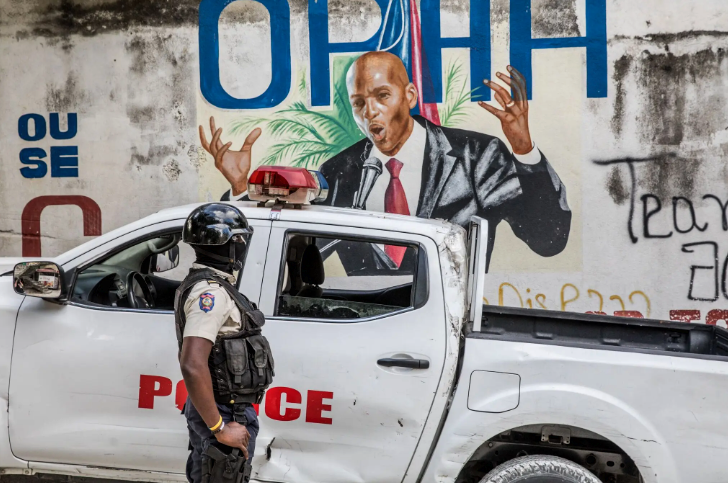Man Pleads Guilty in US Probe of Haiti President Assassination
On Friday, Rodolphe Jaar, a dual Haitian and Chilean citizen arrested in January 2022, pleaded guilty in a US federal court to three charges related to his role in the assassination of Haitian Pres. Jovenel Moïse in July 2021.

Facts
- On Friday, Rodolphe Jaar, a dual Haitian and Chilean citizen arrested in January 2022, pleaded guilty in a US federal court to three charges related to his role in the assassination of Haitian Pres. Jovenel Moïse in July 2021.1
- According to court records, Jaar pleaded guilty to conspiring to commit murder or kidnapping, conspiring to provide material support, and providing material support, including arms, food, and lodging to co-conspirators.2
- Authorities claim the conspirators first planned to kidnap and replace Moïse with Christian Sanon, a Haitian-American preacher and one of four suspects taken into US custody in February. But the original plan fell through shortly before the attack and became an assassination plot.3
- Jaar, the first of 11 defendants to have pleaded guilty, is scheduled to be sentenced in June. The charges carry a statutory maximum term of life imprisonment. However, under a plea agreement, he could get a shorter sentence for cooperating with federal authorities.1
- In 2013, Jaar, a former DEA informant, was convicted of cocaine trafficking. He was released in 2016 and deported to Haiti.3
- Meanwhile, Canada recently announced it would provide $100M to help support the Haitian police struggling to contain violent turf wars between gangs, homicides, and kidnappings in the aftermath of Moïse's assassination.4
Sources: 1Al Jazeera, 2Associated Press, 3Wall Street Journal, and 4CBC.
Narratives
- Narrative A, as provided by MSNBC. Haiti's current chaos is partly the product of consistent US intervention and meddling. Yet despite this, the US government sees it as still too risky to intervene with military force and also discriminates against Haitian migrants. While the US should not be held directly responsible for not reconstructing an entire foreign economy and society, it bears a good deal of responsibility for supporting its Caribbean neighbor and should be more hands-on.
- Narrative B, as provided by Guardian. Haiti doesn't need foreign intervention, particularly from the US. Such ongoing whispers are part of a long line of attempts to smother the popular aspirations of the Haitian people. Real change must occur through empowering the people's will — not via the US or a proxy Haitian government — as Haitians are frustrated by a long colonial and neocolonial exploitation history.






